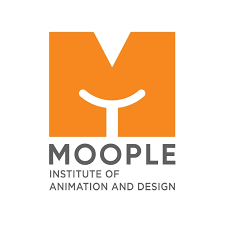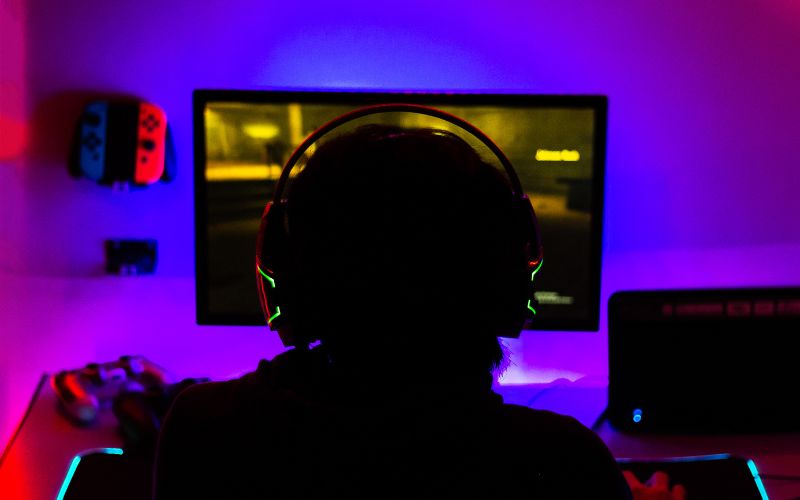The thought of designing your own video game may be both exhilarating and scary.
You might imagine a huge group of engineers sitting behind bright screens, typing complicated code as if it were second nature. But what if you don’t know anything about technology? What if the most you’ve ever done with programming is update your phone?
Here’s the good news — you can learn through video game development courses even if you’ve never touched code before. Seriously. You don’t have to be a computer science major or a smart coder. You need to be curious, patient, and enjoy games.
This is your indication to go for it if you’ve been thinking of creating a 3D environment or a character that needs its own universe. Let’s find out how.
The Modern Game Developer Is Not Always a Coder
Here’s something many beginners overlook: game design is a skill of its own, separate from coding. Understanding how players think, how levels are structured, and how challenges are balanced — that’s the heart of building a great game. And yes, you can learn all that with zero programming experience.
Today’s game engines are more accessible than ever. Thanks to visual tools, artists, storytellers, musicians — even total beginners — can jump in and start creating.
You don’t need to become a software engineer. Just having a basic sense of logic (like “if this happens, then do that”) is often enough to get started.
What Is 3D Game Development?
It’s about creating three-dimensional digital spaces that people can engage with. That implies that people, landscapes, objects, and lighting all have depth and movement.
For example, Minecraft, Fortnite, and Zelda: Breath of the Wild. The 3D scenery and gaming technologies work together to make these worlds seem real.
And while code often powers those systems, the engines behind them — Unity, Unreal Engine, Godot — are now loaded with drag-and-drop features, templates, and visual tools that let you build without typing a single line of code.
What Is Visual Scripting in Game Development?
It’s basically programming without the scary syntax. You use pre-made logic blocks and connect them visually. Imagine building a circuit with Lego pieces — that’s the vibe.
Unreal Engine’s Blueprint system is probably the best-known example. With it, people have made entire games without writing traditional code. Unity also offers visual scripting with tools like Bolt, now built into the engine itself.
These systems let you control characters, trigger events, move objects, set rules, and more.
Tools That Don’t Expect You to Code
The market is full of beginner-friendly tools designed for people like you. Here are some standout options:
- Unreal Engine (Blueprints): Big visuals, no code needed.
- Unity (Visual Scripting): Great balance of flexibility and control.
- Godot: Free, open-source, and excellent for indie projects.
- GDevelop: A true no-code engine for beginners.
- GameMaker Studio: Has both drag-and-drop and script options.
- Construct 3: Web-based and very visual.
Pick one, commit to it, and give yourself time to understand the workflow. Don’t jump around too much in the beginning — you’ll just end up confused.
What You Should Focus On First
If you’re not learning to code right away, focus on learning:
- How a game engine works: Learn your way around the interface.
- Basic movement controls: Moving a character, using input, and setting gravity.
- Camera control: How the player views the game world.
- Trigger events: What happens when a player touches something or enters a zone.
- Importing assets: Using pre-made models, animations, and textures.
You’ll find that many video tutorials and beginner guides walk you through exactly these steps.
Beginner Tips: Start with Small Game Development Projects
One of the biggest mistakes beginners make? Dreaming too big, too soon.
Don’t get me wrong — ambition is great. But if you try to build the next Grand Theft Auto on day one, you’re going to burn out. Instead, aim for something manageable.
Think small: a basic 3D maze, a third-person platformer, or even just making a cube move across a flat surface. These early wins may seem small, but they’ll build your skills and boost your confidence.
How to Collaborate on a Game Project Without Coding Skills
You don’t have to do it all yourself.
If you’re great at storytelling or visuals, why not team up with someone who enjoys the technical side? Sites like itch.io, Discord communities, and Game Jams are filled with people looking to collaborate on passion projects.
Sometimes, the best thing you can do is contribute your unique skill and let someone else handle the code.
3D Game Design Tips for Artists Without Coding Experience
Beautiful visuals and realistic surroundings are essential to 3D games.
You can use game engines to bring in your own 3D models, textures, and animations. If you’re simply trying things out, you may also utilise assets from internet stores.
Check to see whether the 3D game production course you want to take covers rigging, shading, or lighting. Those are the talents that make your images stand out.
Taking a Course Makes It Easier
Not everyone wants to learn purely through YouTube videos or trial and error. If you’re looking for more structured guidance, enrolling in a course on game development can give you a clear learning path.
Many such courses are designed for total beginners. They’ll teach you game logic, visual scripting, user interface design, and asset management long before introducing any code.
Eventually, as you gain confidence, you might want to explore a game development certification — a great way to boost your CV if you’re aiming to enter the industry professionally.
Even if you’re just doing this for fun, having that structured learning helps you stay motivated and avoid frustration.
When You Might Want to Learn Coding Later
Let’s not sugarcoat it — eventually, you’ll hit a ceiling. Maybe you’ll want to build a unique mechanic that visual scripting can’t handle. Or you may want to optimise performance or access specific engine features.
At that point, learning to code will feel less scary. You’ll already understand game structure, logic, and flow. You’ll be ready.
Real People Are Doing It (And So Can You)
If you think you’re the only one trying to learn 3D game development without a programming background, think again.
Thousands of people around the world are doing exactly that. There’s a huge online community of game makers, YouTubers, Redditors, and bloggers who share tutorials, tips, and encouragement.
This isn’t some gatekept industry. If you’ve got the passion, people will help you figure out the rest. There are endless success stories of people entering this space without prior programming knowledge.
Some were artists. Some were writers. Others just loved gaming and wanted to try something new. Today, many of them have published games on Steam, itch.io, and mobile app stores using visual scripting tools.
They started where you are now. The only difference is that they kept going.
Start Your 3D Game Development Journey with Moople Academy
Curious about building your own 3D game but worried you’ve never written a single line of code? Moople Academy is dedicated to helping learners like you.
We believe your creativity should not be limited by your technical background. That’s why our 3D game development classes are designed to help complete beginners get started, without the intimidation of programming.
You’ll not only learn how to design and develop engaging 3D worlds, but you’ll also gain insight into how the game industry works behind the scenes.
What makes us unique:
- Beginner-Friendly Courses. Our 3D game creation courses teach you the basics, like how to design a scene, manipulate objects, and use visual scripting tools like Unity’s Bolt. Don’t know how to code? Not an issue. You will learn by doing.
- Real Projects, Real Practice: Theory is vital, but putting it into action is much more so. You will work on several real-world initiatives throughout your time at Moople.
- From Idea to Business: Our teachers have worked in actual studios before. You’ll receive assistance with your portfolio, comments, and coaching that will help you stand out in a crowded employment market.
- Flexible Learning Paths: Our course format is adjustable to fit your time and objectives, whether you’re studying after work, changing jobs, or trying out a creative side hustle. You may learn online or in person, whatever works best for you.
Conclusion
Can you learn video game development without knowing how to code?
Yes.
Should you start today?
Also yes.
The tech world is no longer just for the technically trained. It’s for the curious, the imaginative, and the brave enough to try something new.
This is your world to build. You don’t need to code to create — just the will to learn.
FAQs
Can I publish a 3D game if I don’t know how to code?
Yes! Many indie developers use visual scripting or pre-made templates to build complete games. It may take longer without custom code, but it’s totally possible.
Will learning to code help me produce better games in the long run?
Yes, most of the time. Even a little amount of coding knowledge lets you change mechanisms more accurately and gives you greater freedom in game engines.
How do I choose the right game engine as a beginner?
Pick one that suits your learning style. Unreal is great for visual learners. Unity has a huge support base. Godot is lightweight and beginner-friendly. Test each briefly and then commit.
Are there any courses focused on storytelling in games?
Of course. The discipline of narrative game design is growing quickly. Many schools that offer 3D game development courses now incorporate lessons on interactive storytelling, conversation systems, and branching tales.

